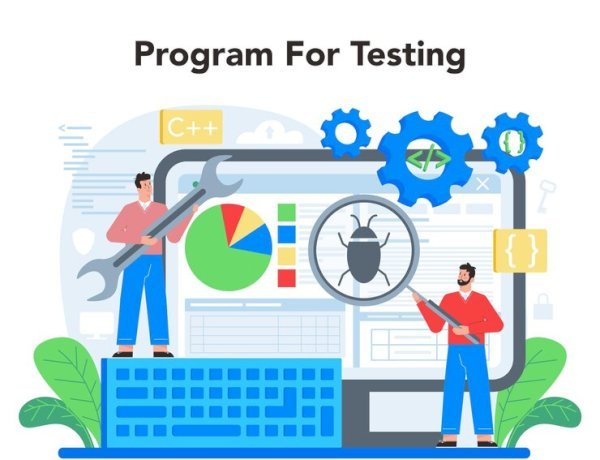How Digital Platforms Are Enhancing the Sports Fan Experience in 2025
Explore how digital platforms in 2025 are revolutionizing sports fan experiences with AI, AR/VR, smart tech, and real-time community engagement.

The sports world has entered a new era in 2025—one powered by technology, tailored experiences, and real-time interaction. From mobile apps and smart TVs to wearable tech and augmented reality, fans are no longer just spectators; they are active participants in every moment of the game. Digital platforms are leading this transformation, creating deeper engagement, stronger communities, and more meaningful value for fans worldwide.
1. Real-Time Engagement and Second-Screen Access

Image source: pexels.com
Today’s fans demand more than just the score—they want insight, analysis, and connection. Over 70% of sports viewers now use a second screen while watching live events, accessing match stats, injury reports, heat maps, and expert commentary in real time. Major platforms like ESPN+, DAZN, and regional sports networks have built second-screen features directly into their apps, allowing fans to stay engaged even during downtime.
Live data visualisation and player tracking systems make it possible for fans to interact with the game on a deeper level, whether they’re watching from home or on the move. The NBA, for instance, provides a "court view" feature, which offers a bird's-eye perspective of player positions, movement data, and real-time shot probabilities, enriching the viewing experience beyond traditional broadcasts.
2. Personalised Content and Smart Recommendations

Image source: pixabay.com
Artificial intelligence is redefining how fans consume content. Whether it's a personalised highlight reel based on your favourite team or a curated news feed reflecting your recent searches, AI helps deliver a more tailored experience. Platforms like OneFootball, Bleacher Report, and official league apps now use algorithms to show relevant video clips, team updates, and match reminders based on user preferences.
Spotify-style recommendation engines are being integrated into many sports platforms, helping fans discover new teams, leagues, and stories they might not have found on their own. This AI-driven approach has increased user engagement by up to 40%, according to a 2025 report from Deloitte Sports Tech Insights.
This personalisation also extends to special promotions and incentives. Brands now offer targeted deals that match user behaviour, seasonal moments, or trending events. For example, 10bet's betting offers are designed to provide sports fans with time-sensitive promotions that align with live games and user interests—enhancing value without disrupting the experience.
3. Community-Driven Platforms and Fan Interactions

Image source: pexels.com
Digital communities have become a vital part of the sports experience. Built-in comment threads, live chats, and social media integrations now let fans discuss, react, and celebrate together during live events. Platforms like FIFA+, NBA League Pass, and fan-led forums are fostering real-time conversations and debates, all within the same app or environment where the game is streamed.
Reddit-style forums are seeing renewed popularity, especially with Gen Z users, who favour peer-led content over official sources. According to a 2025 Nielsen report, over 60% of Gen Z sports fans say that community-driven discussions influence their loyalty more than traditional advertising.
Some clubs are even launching fan-driven decision-making features—allowing users to vote on warm-up music, jersey designs, or special events—creating a stronger emotional connection between fans and teams. FC Barcelona's mobile app, for example, introduced a fan voting system that lets users have a say in non-tactical club decisions, fostering deeper engagement.
4. Immersive Technology: AR, VR, and More
Immersive tech is moving from novelty to necessity. Augmented reality overlays are now commonplace in mobile apps, displaying live stats, scores, and positional data as fans point their phones at the screen or stadium. Virtual reality is also growing rapidly, with devices like Apple Vision Pro and Meta Quest 3 offering fans virtual front-row seats or 360-degree replays from inside the stadium.
Major broadcasters are investing heavily in this space. Sky Sports and NBC Sports have both launched VR-compatible streams for major events. In 2025, the UEFA Champions League final had over 1 million viewers using immersive viewing options—a 150% increase from 2023.
Some platforms now host virtual watch parties, allowing friends across the globe to sit together in a digital suite and experience the game with real-time audio, reactions, and shared viewing features. This feature is especially popular among international fans who want to share the moment with distant friends.
5. Reward Ecosystems and Fan Loyalty Features

Image source: pexels.com
Gamification is a major theme in 2025. From earning points for watching games or completing trivia, to unlocking digital collectibles and merchandise discounts, platforms are creating reward systems that give fans more than just content. These ecosystems are built around loyalty—encouraging ongoing engagement and creating a more immersive digital relationship between fans and brands.
Premier League's "Fan Pass" app, for instance, rewards users with badges, discounts, and behind-the-scenes content based on their engagement level. Fantasy leagues, prediction games, and in-app challenges are now standard features. These tools make fans feel rewarded for their passion, even if they never step into a stadium.
The NFL has also introduced "Fan Miles," a virtual currency earned by interacting with digital content, purchasing merchandise, or attending games. These points can be redeemed for real-world benefits, from VIP experiences to signed memorabilia, further enhancing loyalty and emotional investment.
6. Building Sustainable and Responsible Fan Culture

Image source: pexels.com
Many digital platforms and clubs are also incorporating sustainability into the fan experience. Whether it's through paperless ticketing, eco-challenges in apps, or digital badges for responsible travel, fans are encouraged to contribute positively to their teams and communities.
Manchester City has integrated a "Green Goals" tracker in its app, where fans can log eco-friendly activities such as biking to games or reducing plastic waste, and earn points that translate to charitable donations. Clubs are also partnering with environmental organisations to promote awareness and climate-positive initiatives through matchday campaigns.
Beyond the environment, digital tools are being used to promote inclusivity and mental well-being. The "Mind the Match" initiative launched by the English Football League in collaboration with Calm and Headspace offers guided meditations and mental health resources through their mobile app, aiming to reduce match-day anxiety among fans.
7. Integration with Wearables and Smart Devices

Image source: pexels.com
Wearable tech is now part of the sports ecosystem. Smartwatches and fitness trackers sync with fan apps to provide biometric insights during games. Some platforms offer haptic feedback for key moments in a match, such as goals or red cards, delivered through smart bands. These tools bring the excitement of the stadium into everyday life.
Apple's HealthKit integration with sports apps lets fans track their heart rate during big moments, while smart glasses from Ray-Ban and Meta overlay game stats in real-time as you watch—turning every environment into a digital stadium.
Conclusion
The fan experience in 2025 is more connected, personalised, and interactive than ever before. Digital platforms have transformed how sports are consumed—not just by delivering content, but by creating communities, offering real-time access, and rewarding fans in smarter ways.
From AI-powered personalisation and immersive technologies to community building and sustainability features, the digital transformation is shaping a more inclusive, rewarding, and exciting era for sports lovers. With tools like virtual reality, live data feeds, loyalty ecosystems, and tailored promotions like 10bet’s, fans are no longer passive viewers—they are part of the action. The future of sports isn't just being watched—it's being lived, shaped, and shared by every fan, everywhere.
FAQs
Q1: How are digital platforms changing the sports fan experience?
They provide real-time stats, personalised content, interactive features, and community engagement, making fans more connected to the action.
Q2: What are second-screen experiences in sports?
These are mobile or tablet apps used alongside live matches to view live data, player stats, or social interaction tools.
Q3: How is AI used in sports fan engagement?
AI helps tailor news feeds, suggest content, and offer personalised promotions based on user behavior.
Q4: What is gamification in sports apps?
It involves earning rewards, completing challenges, or collecting badges for interacting with content or participating in fan communities.
Q5: How is AR/VR improving the fan experience?
They offer immersive views, such as virtual front-row seats or AR overlays showing real-time stats during matches.
Q6: Are there any environmental or social initiatives in fan platforms?
Yes, many apps now track eco-actions and offer mental wellness tools, supporting both sustainability and fan well-being.
Q7: What role do smart devices play in sports fandom?
Smartwatches, glasses, and fitness trackers enhance experiences by syncing real-time updates and physiological data with the match.




























